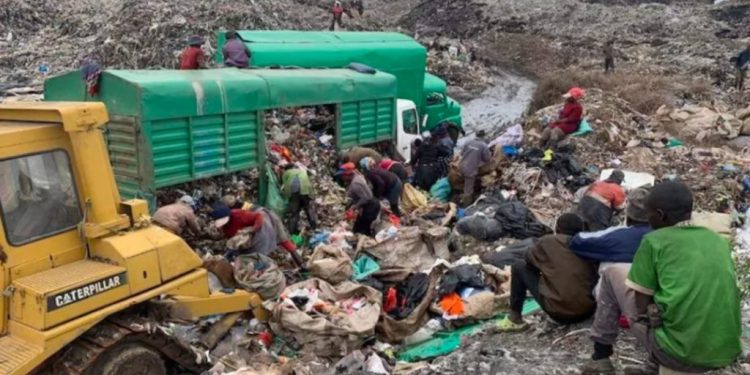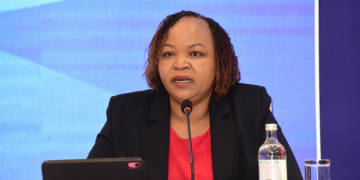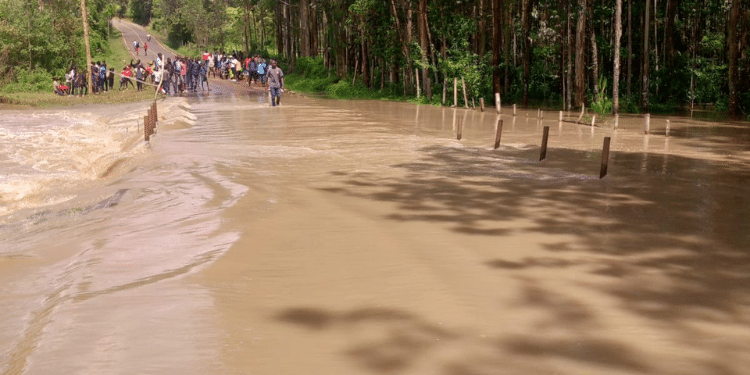James Mwangi remembers the first strange mole on his shoulder — a small, dark spot that he thought was just a minor issue after years of working on his maize farm in the hot sun of the Rift Valley.
However, by the time he finally saw a doctor, it had turned into something much worse: melanoma. “I never imagined the sun could kill me,” he says, looking at the scar on his arm.
Mwangi’s case is not isolated. Across Kenya, doctors like Dr. Roop Saini in Nairobi are sounding the alarm: more patients are showing up with skin lesions and cancers once considered rare. “We’re seeing cases in patients as young as thirty,” Saini warns. “This is unprecedented.”
But it is not just the sun’s stronger rays that are threatening lives. In Meru and Naivasha, Mercy Nanjala, a health officer from Vihiga County, has recorded a troubling increase in stomach and kidney cancers. Floods and droughts have stirred up heavy metals and arsenic in drinking water, which is a hidden danger.
In Nairobi and Mombasa, another risk is in the air: benzene and PM2.5 from cars and factories. Dr. Ronald Nyagaka at Bloom Hospital sees the results of this firsthand: lung cancer cases have risen by 25% over the last decade. “It’s a slow-motion disaster,” he says.
Effects of Climate Change on Humans
Climate change isn’t just a threat to crops or coastlines anymore — it’s quietly rewriting the story of disease in Kenya, fueling a cancer epidemic that’s forcing doctors, patients, and policymakers to confront an invisible crisis.
From toxic air in congested cities to rising carcinogens in water and soil, unusual weather patterns are transforming Kenya’s health landscape and accelerating cancer rates in ways the country is only beginning to understand.
According to Florence Nguuni, a Data scientist and Research Fellow with the Africa Climate and Health Data Capacity Accelerator Network (CAN), a hidden health crisis is emerging, with cancer rates surging alongside rising temperatures.
Nguuni’s research into the connection between climate change and Kenya’s increasing cancer burden was sparked by her experiences working in cancer centers at two major hospitals. She observed a troubling pattern whereby many patients were being diagnosed with cancers that did not align with their lifestyles.
“As a public health researcher in Kenya, I was struck by patients with cancer who didn’t fit their lifestyles—like farmers with liver cancer or mothers suffering from lung damage due to pollution. This prompted me to investigate climate change as a common factor.”
“Our communities must understand this connection, as both are significant threats,” Nguuni explained.
Over several months, Nguuni examined the perceived relationship between climate change, cancer risks, and public health in Kenya. She interviewed oncologists, environmental experts, and members of vulnerable communities to help her in her study.
Nguuni’s study, Exploring the link between climate change and cancer risks revealed that climate change is widely viewed as a significant factor influencing cancer risks through both environmental and lifestyle changes.
Also Read: How Kenya is Losing Ksh900 Billion Yearly as Climate Worsens
An overwhelming majority of experts (90%) she interviewed believe that climate change contributes to an increased cancer risk.
Although climate change may not directly cause cancer, it creates conditions that heighten exposure to carcinogenic factors. As a result, it is now considered a critical public health issue, particularly due to its influence on disease patterns, health infrastructure, and cancer care systems.
Nguuni’s research highlights several climate-related factors contributing to Kenya’s rising cancer rates:
- Air pollution from industrial emissions, vehicle exhaust, and wildfires increases exposure to carcinogens, driving lung cancer.
- Increased UV radiation from ozone depletion and higher temperatures is linked to surging skin cancer cases.
- Food and water contamination from aflatoxins, heavy metals, and chemicals (due to floods, droughts, and higher temperatures) raise risks of liver, bladder, kidney, and gastrointestinal cancers, especially in areas like Meru and Naivasha.
- Extreme heat leads to riskier behaviors (like drinking very hot beverages) and more consumption of processed foods, raising esophageal cancer risk.
- Healthcare disruptions from climate disasters delay cancer detection and treatment.
Low-income and rural communities are particularly vulnerable due to higher exposure, limited access to healthcare, and lower resilience. While urban areas struggle with air pollution and lifestyle risks, experts believe rural areas face even higher cancer threats.
New approaches to the fight against cancer
Experts agree that Kenya’s fight against cancer must now incorporate the risks posed by climate change. They recommend public education campaigns, stronger water and food safety standards, UV protection efforts, and improved air pollution controls. Strengthening the healthcare system to be more resilient to climate related challenges is also essential.
Also Read: Kenya Calls for Ksh167 trillion for Africa Climate Fund for Developing Nations at COP29
Florence Nguuni stresses that a holistic, cross-sectoral approach is crucial. This means investing in better environmental monitoring, using advanced data analytics to integrate health and climate information, and conducting long-term, community-based research. It also involves boosting research funding, fostering collaboration between health, environment, and policy experts, and tightening safety regulations.
Nguuni argues that only through urgent, coordinated action can Kenya address the cancer epidemic in the face of climate change. By recognising the links between environmental shifts and public health, the country can better safeguard its people against this growing threat.
About Florence Nguuni
Florence Nguuni is a data scientist and public health expert with a deep passion for the nexus of climate, health, and data. She believes that understanding the interconnectedness of these areas is key to creating sustainable solutions that improve public health.
With a solid foundation in population health and expertise in data collection, visualization, and machine learning, Florence excels at turning complex data into clear, actionable insights.
Florence is known for her storytelling skills, analytical rigor, and collaborative approach. She’s passionate about using data to drive innovative solutions for pressing public health challenges, all while highlighting the vital intersection between climate, health, and data.
Follow our WhatsApp Channel and X Account for real-time news updates.














































































